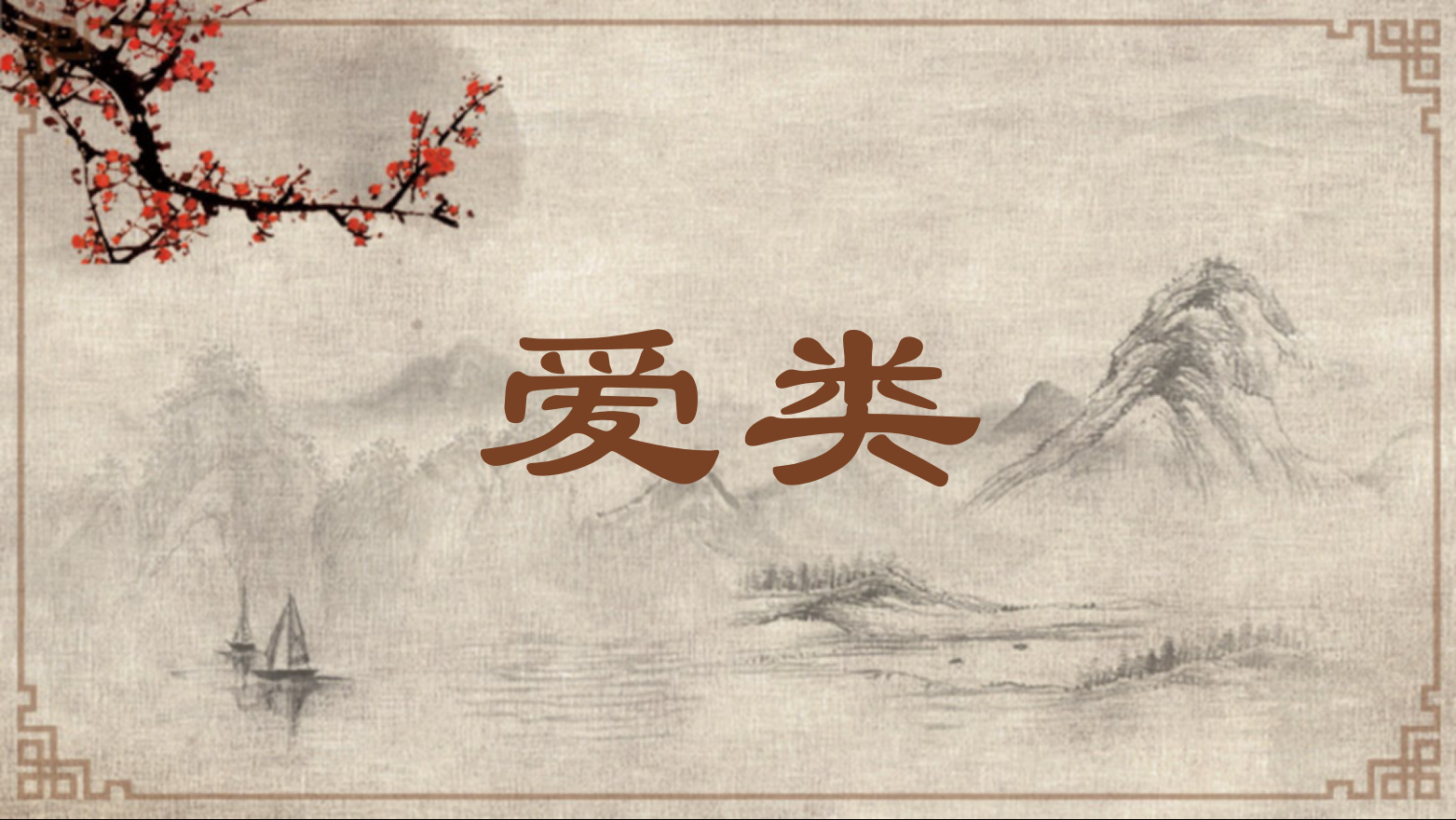爱类 Loving One's Own Kind

爱自己的同类,爱人类。中国古人认为,爱同类是有知觉或有灵性的动物的基本属性,作为万物灵长的人类亦然。人的爱心,首先表现在爱自己的同类上,生而为人,如果爱其他事物而不爱人类,就不能叫有爱心。也即是说,人是人类爱的第一对象,爱人类是人类爱的第一本质,也是人爱其他事物的精神原点。人之为人的基本规定性亦在于此。
The ancient Chinese considered loving others of one's own kind to be part of the fundamental nature of animals with consciousness and intelligence, and this was particularly true of humans, the most advanced of all creatures. Human love is first of all manifested in love for one's own kind. If a human loves other beings but not his or her fellow humans, that is not true love. Thus, human love first of all reaches other human beings, and love for humans is the fundamental nature of human love and also the origin of love for other creatures. So to love other human beings is a defining attribute of human beings.
引例 Citations:
◎仁于他物,不仁于人,不得为仁;不仁于他物,独仁于人,犹若为仁。仁也者,仁乎其类者也。故仁人之于民也,可以便之,无不行也。(《吕氏春秋·爱类》)
对其他物类仁爱,对人却不仁爱,不能算有仁爱;对其他物类不仁爱,只对人仁爱,仍算有仁爱。所谓仁爱,是对自己的同类仁爱。所以,有仁德的治国者,只要是对百姓有利的事情,全都去做。
If he loves other things but not his fellow human beings, he is not a man with true love. If he loves human beings but not other things, he is still a man with true love. The love we talk about is love for one's own kind. Therefore, a ruler with love who governs a country will do all the things beneficial to the people. (Master Lyu's Spring and Autumn Annals)
◎遍知万物而不知人道,不可谓智;遍爱群生而不爱人类,不可谓仁。仁者爱其类也,智者不可惑也。(《淮南子·主术训》)
遍识天下万物却不懂世态人情,不能称有智慧;遍爱天下生物却不爱人类,不能称有仁爱。所谓有仁爱,就是爱自己的同类;所谓有智慧,就是遇事不会疑惑。
If he knows everything in the world, but not human feelings, he is not regarded as an intelligent man. If he loves all the living things in the world but not human beings, he is not regarded as a man with true love. The love that we talk about is to love one's own kind; the intelligence that we have in mind is the ability to see things for what they are. (Huainanzi)
推荐:教育部 国家语委
供稿:北京外国语大学 外语教学与研究出版社
责任编辑:钱耐安





